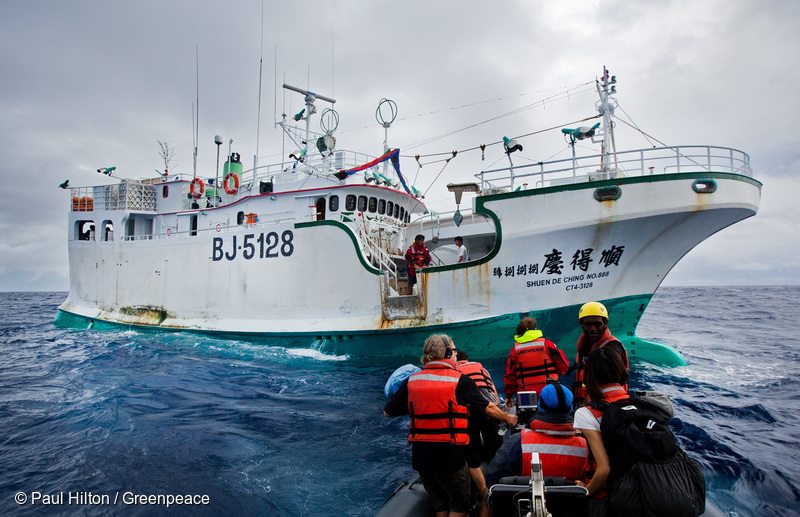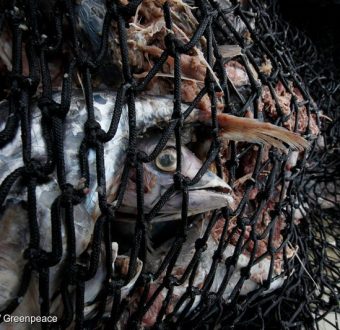Today, the U.S. Customs and Border Protection (CBP), Office of Trade issued a Withhold Release Order (WRO) for Lien Yi Hsing No. 12 due to suspicion of forced labor. The WRO on the Taiwanese-flagged fishing vessel was triggered in part by the Greenpeace Southeast Asia report Seabound: The Journey to Modern Slavery on the High Seas that uncovered the vessel’s deceptive hiring practices and withheld wages from crew members. This is the second WRO issued for a vessel in the Seabound report joining Da Wang which was penalized in August. All four detention orders punishing the seafood industry have been on Taiwanese-owned or flagged fishing vessels.
The order caps off a year of U.S. crackdowns on human rights abuses in the Taiwanese distant water fishing (DWF) fleet. In September, the U.S. Department of Labor added Taiwan-caught fish in its 2020 List of Goods Produced by Child Labor or Forced Labor for the first time in the list’s history.
In response, Andy Shen, Senior Oceans Adviser at Greenpeace U.S.A., said:
“The third WRO on a Taiwanese-related vessel in 2020 underscores that forced labor in the Taiwanese distant water fishing fleet is systemic and remains a significant problem. There are measures that U.S. seafood buyers and investors can take today that would dramatically reduce these abuses. These include advocating to the Taiwanese government for serious reforms [1] and adopting stronger policies and practices [2] that cover their Taiwanese seafood supply chains. Common sense solutions like conducting human rights due diligence down to the vessel level, publicly disclosing the identities and key details of all their suppliers, and setting a limit of three months at sea before vessels return to a port would protect both fishers and the oceans that are overfished through their forced labor.
“All stakeholders, especially governments, and the companies that source from the Taiwanese fleet must urgently address this issue or face increasingly severe legal, financial, and reputational risks from partnering with companies that commit or are complicit in human rights abuse.”
Pearl Chen, Ocean Campaigner from Greenpeace East Asia said:
“The fact that all four fishing vessels penalized by CBP are Taiwanese-related shows the Taiwanese government has failed to protect the migrant fishers working in its distant water fishing fleet. Taiwan’s current regulation for migrant fishers working on Taiwan’s distant water fishing vessels subjects them to lower labor standards and weaker protections than Taiwanese fishers. We demand the Taiwan government stop discriminating against migrant fishers and ensure they enjoy the same labor protections as Taiwanese fishers. The Taiwan government must also ensure the migrant fishers are governed by the Ministry of Labor to effectively protect their rights and prevent Taiwan from losing the U.S. as an important seafood market. ”
###
Media Contact:
Tyler Kruse, Greenpeace USA
[email protected]
808-741-2791





